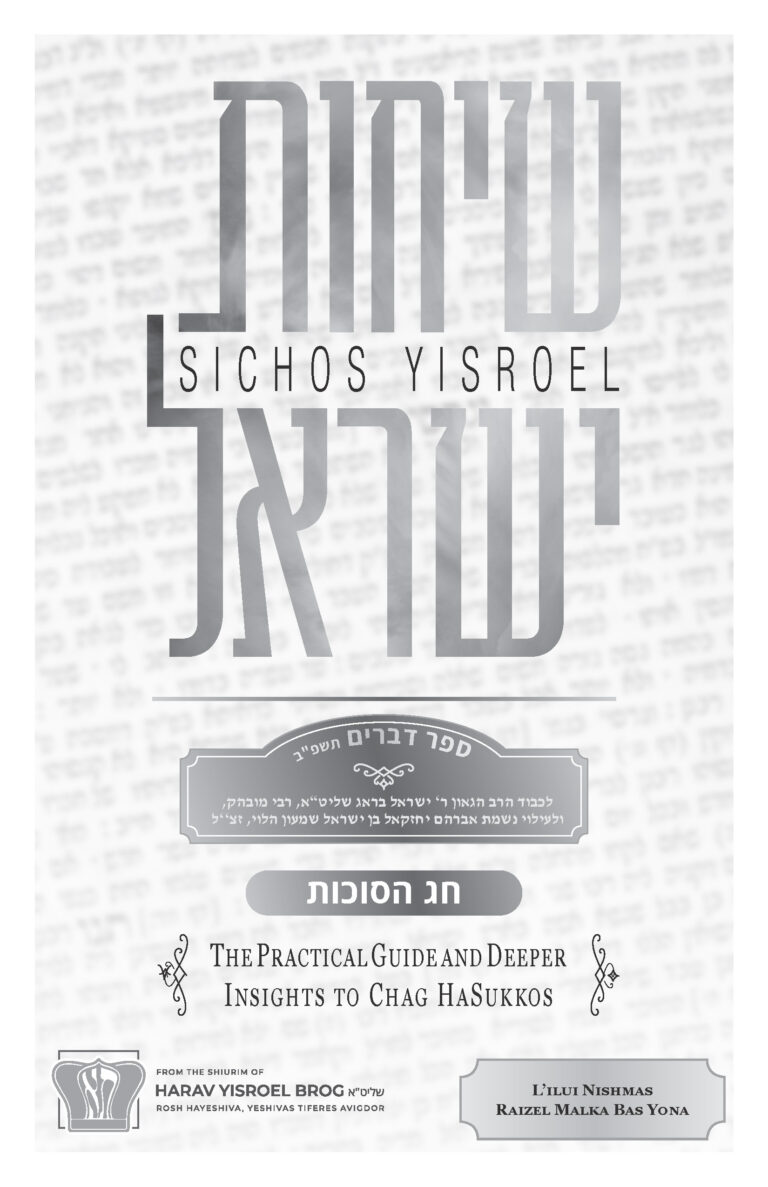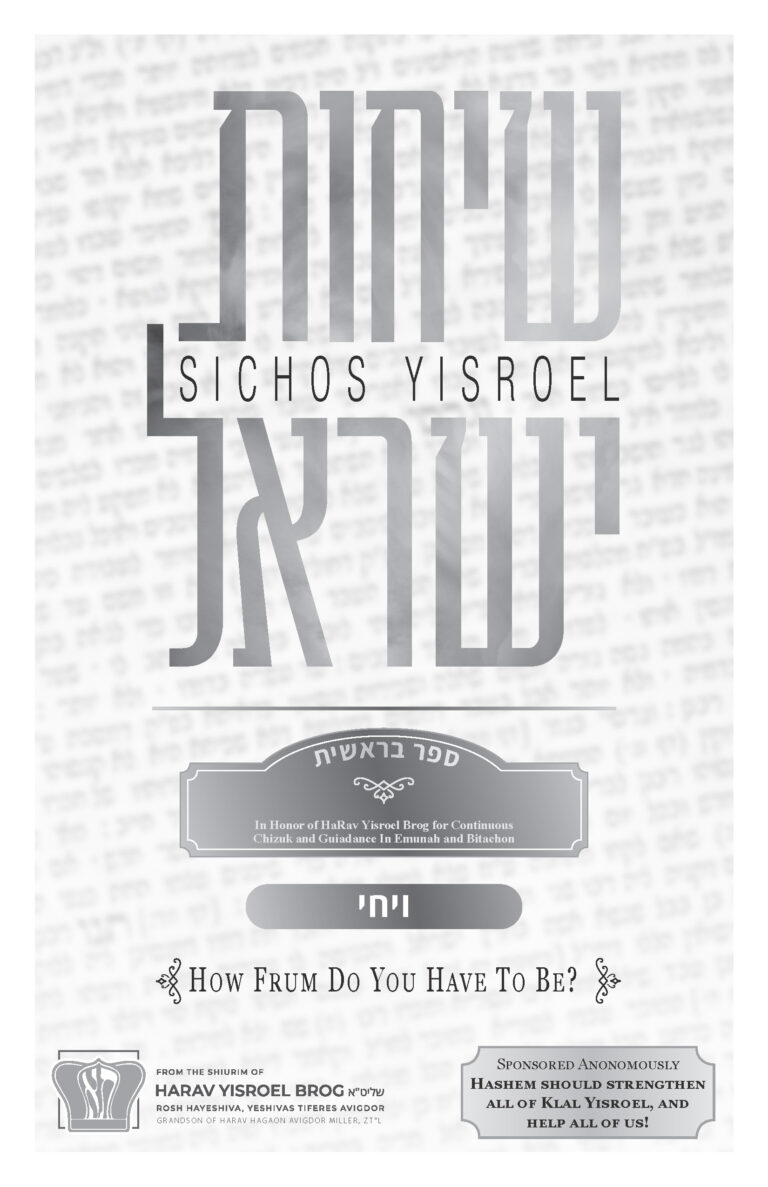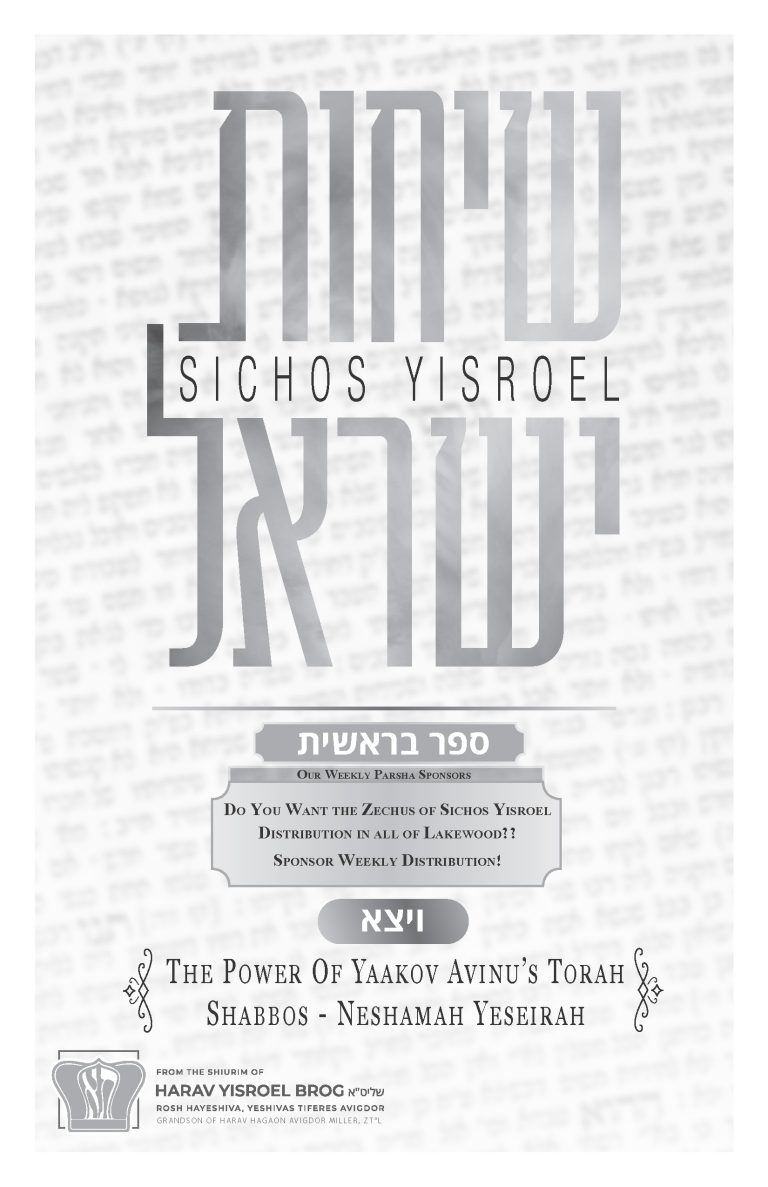
Similar Posts

Sukkos 5783 – The Practical Guide and Deeper Insights to Chag HaSukkos
Sukkos is called zman simchaseinu. The simchah of Sukkos is a dual simchah because Sukkos has a dual role. Number one, Sukkos is the end of the Yamim Hanora’im, the end of the Days of Awe that began with Rosh Hashanah and Yom Kippur. Sukkos is the conclusion of those days, culminating with Hoshanah Rabbah which is called the גמר חתימת הדין. Number two…

Matos-Masei 5784: How to Correct Baseless Hatred
We are in the Three Weeks now, together with the whole world, and we are trying to think about this period. Today’s shiur is going to focus a bit on understanding the three weeks from a psychological standpoint. The Chafetz Chaim, in his sefer Ahavas Yisrael, discusses the reasons why people don’t like each other. Now, the first thing you have to understand is that human psychology is at work overtime whenever we have social interaction. When we encounter people, whether face to face or from a distance, or even through somebody else introducing me to that person, the human being always establishes a platform: do I like that person, or do I not like that person…

Vayechi 5784: How Frum Do You Have To Be?
Today, I want to discuss an interesting question that was posed to me. It is something that I experience quite often when meeting people. The question is: “What is the level of Yiddishkeit, of frumkeit, of religion that Hashem expects of me? Does Hashem expect everybody to be committed to the same degree?” It would be very difficult to imagine that Hashem would expect from a little fellow from Chicago the same that He would want from a fellow from Lakewood or Meah Shearim

Shemini 5782 – Four Non-Kosher Animals & the Umos Haolam
Sponsored L’zchus Acheinu Bnei Yisroel In The Ukraine – May They Experience Yeshuos B’Karov! Visit YTATorah.org Shiur presented in 5780

Vaera 5783: Planting Seeds to Build Our Future with Bitachon in Tefillah
We have to learn from our avos, Avraham, Yitzchak and Yaakov, that we need to develop in every area of our lives. The avos built the future of Klal Yisrael. Their whole outlook and their whole avodah was with an eye on the future. It’s not the pshat that the avos were great Jews, super Yidden, and therefore they got a present, and were blessed with good children. That’s how we may see it. When we see a guy has good kids, what do we say? “Oh, he got a brachah. He went to a rebbe. He went to a tzaddik. He went to some kever. Maybe he did a good deed.” You have to realize the avos were called avos. Do you know what avos means?

Vayeitzei 5785: The Power Of Yaakov Avinu’s Torah
In this week’s parshah, the Torah tells us about Yaakov Avinu, who found himself in double jeopardy. Number one, he hadn’t yet gotten married. He was no youngster anymore. He was in his sixties. So he was an older gentleman already and he was not married. His father had gotten married at the age of 40. So Yaakov Avinu was way over the top. That was one situation he was facing. The second challenge that he was facing was that…